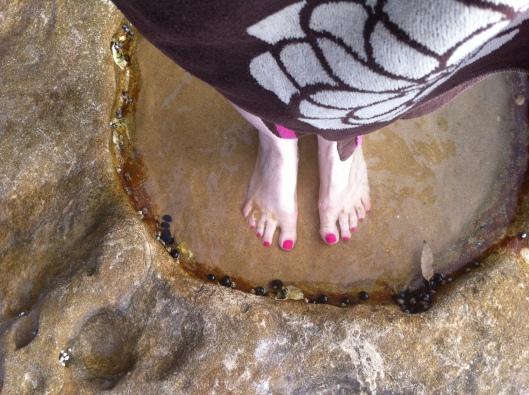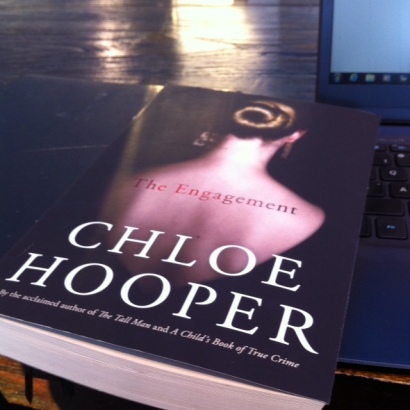
“I’m a seeker who writes about what I find. And maybe, on just the right day, I can help you flatten your learning curve. If I’ve got anything to say, it’s this: you are the authority on you.”
Danielle LaPorte – White Hot Truth: Clarity for keeping it real on your spiritual path from one seeker to another
I am a huge fan of Danielle LaPorte. I love her clear, crisp, grounded, heart-filled way of talking and thinking. Her work is concurrently suffused with spirit and light whilst being grounded in experience and day to day living.
She speaks directly to my heart, and I’ve been listening for nearly 10 years now since I first came across her work when I was somewhat completely brought to my knees with the open-hearted surgery that is grief.
Back then, Danielle’s web-site was called White Hot Truth, something I needed at a time when each day had the consistency of mud I tried to swim through. “Yes, I’ll have some of that ‘White Hot Truth’ please“. I read and followed, a gentle disciple of the heart, as Danielle spoke to me of hope and self-compassion.
I’ve since followed her work and when I saw that White Hot Truth was coming back in another form as a book, I signed up to read ahead, review and be part of the ‘White Hot Truth’ launch team. I knew from experience this would be something very special, a honed diamond sparkling its message for me and others to catch.
The light in White Hot Truth
White Hot Truth is this diamond, each chapter a facet of light, grounded in a memoir-kind of reflection, distilling experience that heads straight for the heart. I alternated between reading on-screen and listening to Danielle’s voice via the audiobook. This made the reading process all the richer as I shifted between my voice engaging directly with the words, and Danielle’s voice reading her own.
The book traverses so many realms – it’s deep and wide but its terrain is clear and sweeps away any barriers to understanding in its path. The essence of the book is to become aware of the lies or unhelpful blocks that may have found their way into our trusting hearts including the “really big lies” of inadequacy, authority and affiliation. And to recognise that we are able to take in so much influence and so many ideas and still be the authority on ourselves, the one to make the decisions with wisdom, the one to set boundaries with an open heart.
Some quotes from White Hot Truth
Danielle draws from wide sources to find the most perfect quotes to place strategically. And then sprinkled through like stars sending their energy through the text, there are Danielle’s own quotable quotes and truthbombs.
A few of my favourites of so many I have highlighted:
On flow: “It was too much flow and not enough restraint. I was a river in need of some riverbanks.”
On forgiveness: “The heart runs on its own clock, untethered from calendar days or years.”
On self-help: “The best self-help is self-compassion.”
On approval: “Working for approval takes up a lot of energy, and it can be a huge distraction from seeing the gifts that you already hold in your hands.”
Wisdom, paradox and authenticity in White Hot Truth
A key piece of wisdom threaded through-out is that of paradox. White Hot Truth shows how with clarity, you can take both perspectives and find a path. For example, you can lead with your heart and your head. You don’t have to choose. How many of us have shut down one side of the equation because we fear losing the other, when really it’s a false dichotomy. I know I have. This book opens up paradox as a kind of wisdom.
I read White Hot Truth concurrently with Marrow by Elizabeth Lesser. In Marrow, Elizabeth talks about ‘Authenticity Deficit Disorder’, how we tiptoe around those things we really want to say or be, those things that really matter as we go through our days. It seems that sometimes it takes a tragedy, serious illness or terrible grief to make us go there to the marrow. And even then we can manage to side step it.
In White Hot Truth, Danielle speaks directly, supporting us to honour our authenticity and love who and what we are. She encourages us to recognise where we may have inadvertently blunted our ability to cut through. She shows us how to speak up without fear, through being a voice and model for how to speak up.
Being real and who we are as influence
Mark Nepo in The Book of Awakening talks about the energy of being real, of ‘mana’, of the extraordinary power of being who we are to influence others:
In this way, without any intent to shape others, we simply have to be authentic, and a sense of ‘mana’, of spiritual light and warmth, will emanate from our souls, causing others to grow – not towards us, but towards the light that moves through us.
White Hot Truth made me smile with recognition and more than once, I held my heart as my eyes filled with tears as something broke through, probably self-compassion.
At times laugh-out-loud funny, other times shocking and sobering, it’s a ball of bright authentic light offered as a guide from one seeker to another to illuminate our path. I’m so grateful for its warm and passionate influence. Like ‘The Hierophant’ card in tarot, this book is a teacher and a reminder that:
….we are not alone; we can actually take someone else’s advice and methods and recast them to meet our own needs
Playing with Symbols, Monicka Clio Sakki
In fact White Hot Truth encourages us to do exactly that and for you to be the authority on you. I know it will shape and guide my own inspired path now and for years to come.
Review and Publication notes:
White Hot Truth will be published on 16 May 2017 and is available on pre-order. Because I am part of the White Hot Truth Launch Team, I got the advanced digital copy. You can get a chance to listen to the book before it’s in stores with the free audio book. Find out how here: daniellelaporte.com/whitehottruth/
Keep in touch & free ebook on the ’36 Books that Shaped my Story’
You can download my free 95-page ebook on the 36 Books that Shaped my Story – just sign up with your email address in the box to the right or below. You will also receive updates from Quiet Writing and its passions. This includes personality type, coaching, creativity, writing, tarot and other connections to help express your unique voice in the world.
Quiet Writing is on Facebook and Instagram – keep in touch and interact with the growing Quiet Writing community.
If you enjoyed this post, please share via your preferred social media channel – links are below.
You might also enjoy:
Influence, gratitude and choosing to shine – Danielle LaPorte
20 practical ways of showing up and being brave (and helpful)
Intuition, writing and work – eight ways intuition can guide your creativity
















